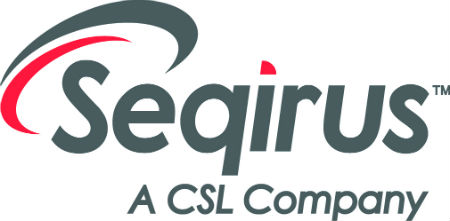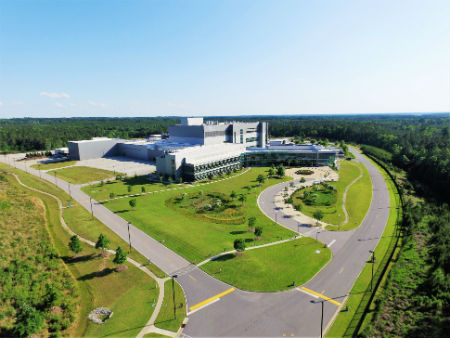
Seqirus Begins $140 Million Expansion of Flu Vaccine Plant

Seqirus, already the world’s largest producer of cell-based influenza vaccines, is about to grow even larger due to strong global demand for its quadrivalent flu vaccine.
The company broke ground this month for a $140 million expansion of its vaccine-production plant in Holly Springs. The construction will double the plant’s capacity to 40 million doses of flu vaccine annually, up from 20 million doses produced this year.
The plant, which has about 550 full-time employees and 150 contractors, will add another 120 employees over the next three years, the company announced.
The expansion, when completed in April 2020, will give Seqirus 475,000 square feet of space – about the size of eight football fields – at the 185-acre site.
The additional capacity will allow Seqirus to produce a greater variety of vaccines early in the flu season and to ramp up production more quickly in case of a flu pandemic.

-- Seqirus photo
The 2017-2018 influenza season in the United States was one of the worst in recent years, and influenza continues to be a public health threat, said Gordon Naylor, president of Seqirus.
“We are deeply committed to developing innovative solutions, including cell-based vaccines, to help reduce deaths and severe illness caused by influenza,” Naylor said. “In just three years, we have quadrupled our supply of our cell-based influenza vaccine and this major investment will enable us to meet further demand.”
The Holly Springs plant, located 24 miles south of Research Triangle Park, was built in partnership with the federal Biomedical Advanced Research and Development Authority (BARDA) to combat pandemic influenza threats. The $1 billion plant was built by Novartis and began production in 2014.
Novartis sold the plant and its vaccines business in 2015 to the vaccines division of CSL Ltd., an Australian biopharmaceutical company, for $275 million. CSL, which employs more than 20,000 people and has operations in more than 60 countries, renamed the vaccines business Seqirus.
Seqirus has more than 2,000 employees worldwide and a commercial presence in 20 countries. It operates production facilities in the U.S., the United Kingdom and Australia and manufactures flu vaccines using both egg-based and cell-based technologies.
The Holly Springs plant produces vaccines through a novel cell culture process instead of the traditional egg-based method. The inactivated viruses that protect against flu infection are grown, or cultured, in mammalian cells inside sterile, stainless-steel bioreactors.
The process allows faster scale-up of vaccine production, which could be important in an influenza pandemic or a bioterror attack. The process also avoids the risk of vaccine contamination by chickens infected with avian flu.
Seqirus developed the first cell-based influenza vaccine in the United States for people over 4 years old and an adjuvant vaccine for people over 65.
The company said recent “real-world evidence” studies indicate that its quadrivalent vaccine was significantly more effective than standard egg-based quadrivalent vaccine in preventing influenza-like illness based on primary care visits in people aged 4 years and above during the 2017-18 flu season in the United States.
The quadrivalent vaccine is designed to protect against four different strains of the flu virus: two influenza A viruses and two influenza B viruses.
